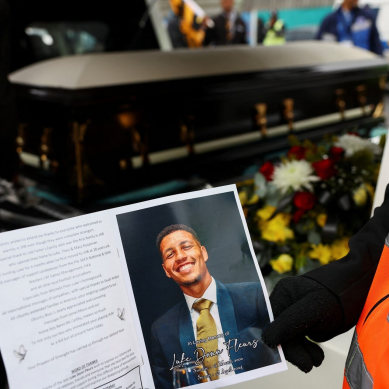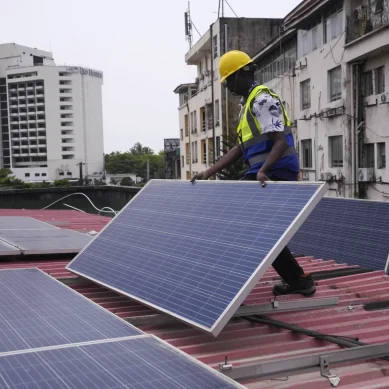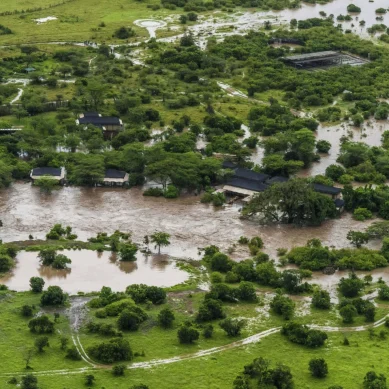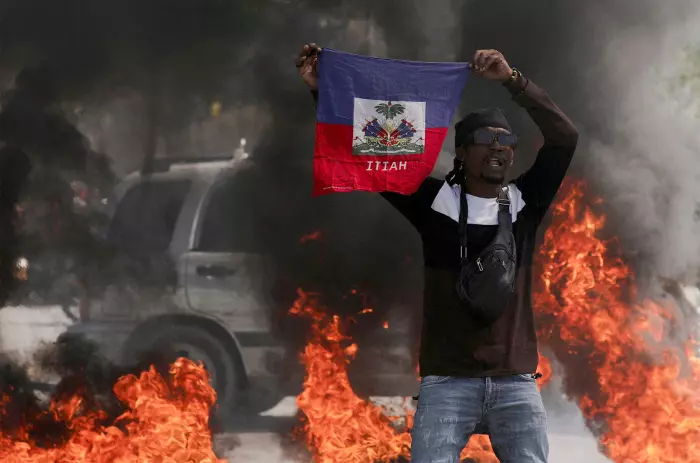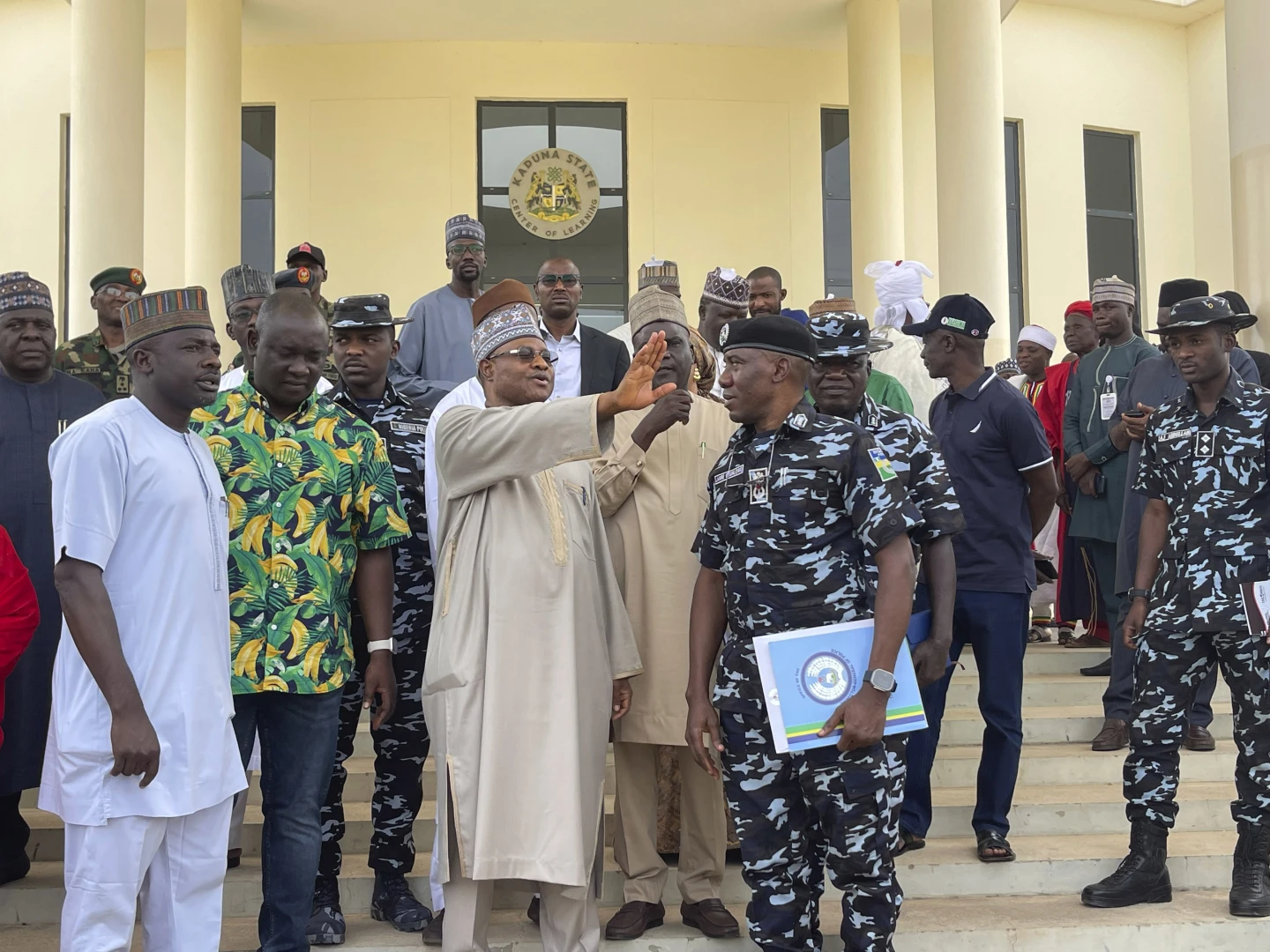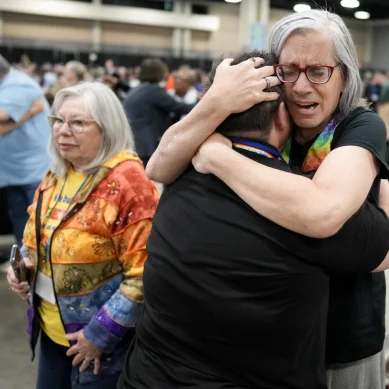Battered by frequent natural disasters and poverty, Haiti has experienced chronic hunger for decades, but in 2010 it was hit by a catastrophic earthquake that flattened much of the capital, killing between 100,000 and 300,000 people and leaving it more vulnerable to political corruption and mismanagement, economic malaise, and growing insecurity.
In the past few years, lower agricultural production, the Covid-19 pandemic, runaway inflation, international aid cuts and rising gang violence, have all contributed to the worst hunger crisis in Haiti’s history. According to the World Food Programme (WFP) the number of food-insecure people has tripled since 2016. Currently, 4.3 million of Haiti’s 11.6 million people face acute hunger, while 1.4 million are on the brink of starvation.
Haiti has no army and its police are overwhelmed. The rampant insecurity now hinders food distribution, even as provisions are running low or hijacked by gangs in the port.
The New York Times reported that more than half of the medical facilities in Port-au-Prince and the rural Artibonite department have closed or reduced their capacity because they lack basic medical supplies and patients struggle to access them.
On March 16, UNICEF denounced the looting of 17 containers with essential items for maternal, neonatal, and child care, including resuscitators, while the UN has expressed particular concern for the risk of life-threatening complications for pregnant women with no access to healthcare.
Mass displacement has also made access to those affected difficult and contributed to a rise in sexual violence. According to the UN, 15,000 people were displaced from camps in just a week. Most had already been displaced and now live in makeshift camps, schools or public buildings. Thirty-two per cent of them are children and teenagers. The country has a total of 362,000 displaced people, including at least 35,000 newly displaced since the beginning of the year.
“We as humanitarian actors do not have access to those people due to fuel shortage and roadblocks,” Boby Sander, country director at Food for the Hungry, a Christian aid organisation, said. “The seaport is occupied by gangs, and warehouses have been looted. So food shortage is at our doorstep and now prices are doubling for everything.”
Sander, who is Haitian, said his organisation’s cash transfer programme, which allows people to buy food and basic items, has been disrupted by cash transport issues related to gang control and the closure of the international airport. It is trying to work around this by using cooperative banks or village banks that still have some liquidity.
Mercy Corps has also been struggling to reach the displaced. In Port-au-Prince, most people in need are in temporary camps in Carrefour Feuilles, one of the areas most affected by violence. Many were forced to leave their shelters this month. Community agents are trying to establish a database of those they managed to contact, but reaching them with actual assistance remains impossible.
Currently, Mercy Corps is still operating normally in the rural departments of Nippes and Grand’Anse, distributing seeds bought from local providers for the coming planting season. But it fears the lack of cash will soon hinder its efforts as it won’t be able to pay the vendors who distribute the seeds to the community.
“People are afraid of going out because no one knows what’s happening,” said Laurent Uwumuremyi, the Mercy Corps country director. “Some of my colleagues reported seeing dead bodies in the street when they tried to come to the office; it’s really traumatising.”
Outside Port-au-Prince, the situation is getting worse too. Gangs control most of the Artibonite and Ouest departments, which prevents farmers from selling their products. The companies they provided have left because of insecurity and they can’t access bigger markets because gangs charge them huge fees to use the main national roads. Local markets are saturated, and much of the production is lost.
At the Dominican Republic border, Haitian migrants continue to be forcibly returned despite calls from the international community to stop deportations, which reached more than 4,500 people this month.
“The population has been abandoned,” said Pierre Espérance, a sociologist and the executive director of the National Human Rights Defence Network in Haiti (RNDDH). “And if we have a problem, we can’t call the police because they won’t come. The situation is chaotic.”
Several countries, including the United States and the EU, have announced extra funding for humanitarian assistance in Haiti, and the UN is setting up an air bridge from the Dominican Republic. But even if more aid can reach the country, distributing it onwards to those affected on the ground is a huge challenge.
Most humanitarians working in international NGOs and agencies are currently being evacuated to the Dominican Republic. And many of the Haitian NGO workers who are still in the country can’t go out without risking their lives or having their supplies looted.
Experts say Haiti’s political class is deeply divided and disconnected from a citizenry that feels trapped between supporting an elite it doesn’t trust or gang leaders who are promising to change the system and empower the Haitian people.
The CARICOM agreement, critics say, was only reached with Haitians taking part through video conferences overseen by US Secretary of State Antony Blinken. “Unfortunately, there wasn’t much room for Haitians in the decision-making. It was CARICOM that wanted a council with so many people,” said Ésperance. “It’s not efficient.”
For Monique Clesca of the Montana Accord, which has a representative on the council, the transition plan isn’t perfect but everyone is going to have to compromise to make things work and move forward.
The Montana Accord has been pushing Haitian-led solutions for three years and was opposed to the deployment of the MSS, which it might now have to accept.
“We will have to enter this with a lot of humility and abnegation, because if people are going to be jostling for power once they’re in, it’s not going to work,” Clesca said. “Saying a Haitian solution doesn’t mean that we are not open to getting support. We know some of our limitations.”
- The New Humanitarian report
